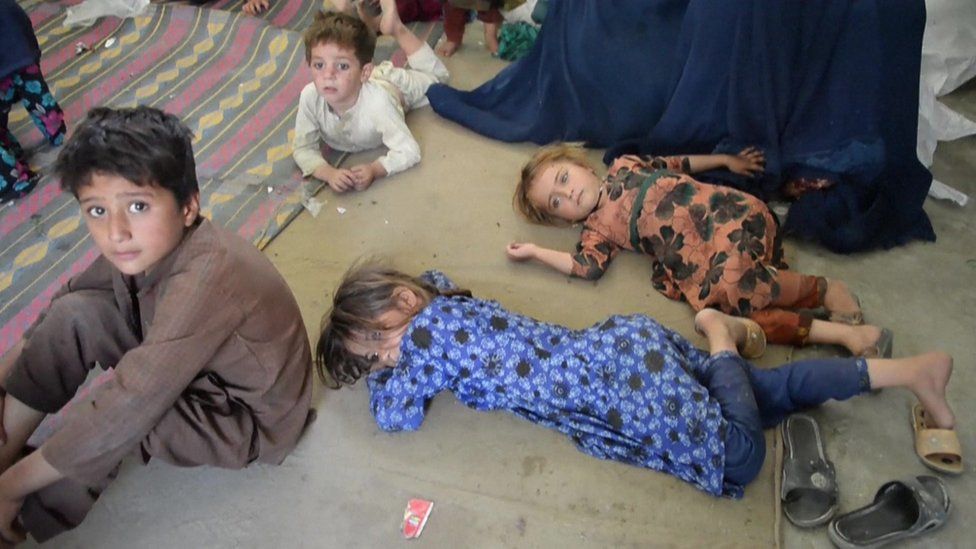BBC News 8 August 2021
The Taliban have captured the key northern Afghan city of Kunduz after fierce fighting with government forces.
A local official told the BBC all but the city's airport had fallen to the militant group.
Chaotic scenes have been reported inside Kunduz, with buildings and shops ablaze. The Taliban's flag has been seen raised in the city centre.
Violence has escalated across Afghanistan after US and other international forces began to withdraw their troops from the country, following 20 years of military operations.
Taliban militants have made rapid advances in recent weeks. Having captured large swathes of the countryside, they are now targeting key towns and cities.
On Friday, Zaranj in the south-western province of Nimroz fell into their control. Less than 48 hours later, the northern city of Sheberghan in Jawzjan province was seized.
There are reports that another northern city, Sar-e-Pul, has also been captured, although this is yet to be independently confirmed.
Thousands of civilians have been displaced during the fighting this year. Families, including babies and young children, have been sheltering in a school in the north-eastern city of Asadabad.
"Many bombs were dropped on our village. The Taliban came and destroyed everything. We were helpless and had to leave our houses. Our children and ourselves are sleeping on the ground in dire conditions", Gul Naaz told AFP.
"There was firing, one of my seven-year-old daughters went out during that fighting and disappeared. I don't know if she is alive or dead," another displaced resident said.
The importance of Kunduz
The seizure of Kunduz is the most significant gain for the Taliban since they launched their offensive in May.
It is one of Afghanistan's largest cities and considered a gateway to its northern provinces. Its location makes the city strategically important - there are highways connecting Kunduz to other major cities, including the capital Kabul, and the province shares a border with Tajikistan.
That border is used for the smuggling of Afghan opium and heroin to Central Asia, which then finds its way to Europe. Controlling Kunduz means controlling one of the most important drug smuggling routes in the region.
It also holds symbolic significance for the Taliban because it was a key northern stronghold before 2001. The militants captured the city in 2015 and again in 2016 but have never been able to hold it for long.

